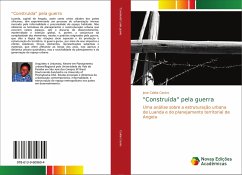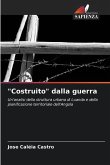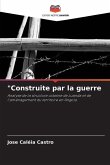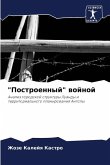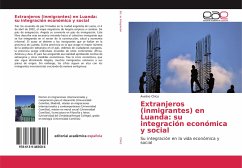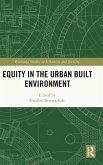Luanda, the capital of Angola, like many cities in African countries, has experienced a process of intense urbanisation marked by the informality and precariousness of the space it inhabits. Despite the attempts at urban planning and restructuring that are taking place in these spaces, under the discourse of development, modernity and global insertion, it is, however, the complexity of the elements, modes and patterns originated by the war that give the logic to socio-spatial relations and the production and structuring of the territory. Through its impacts and collateral effects, the war generated forces, elements, subjective and material representations that have affected not only everyday urban dynamics over the years, but also the rationality of urban planning and governance.
Bitte wählen Sie Ihr Anliegen aus.
Rechnungen
Retourenschein anfordern
Bestellstatus
Storno


